Advertisement
Climate Change in Mass.
Boston Startup Hopes Its Seeds Will Help Farmers Cope With Climate Change
Resume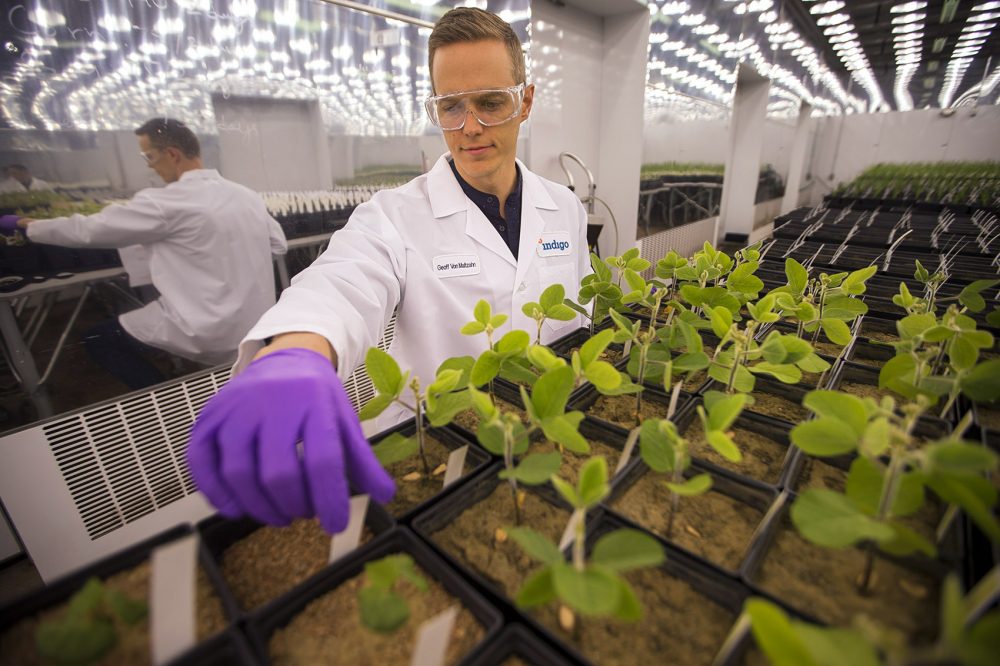
Farmers are often at the mercy of Mother Nature — too much heat, and their crops could shrivel up; too little water, and their plants might die off.
Natural weather fluctuations are challenging, but add in climate change and experts say the weather extremes could be devastating to our food supply.
Indigo Agriculture, a Charlestown-based startup, is trying to tackle this big problem with a microscopic solution.
The company spun out of Flagship Pioneering, one of the most active biotech venture capital firms in the state, raising over $100 million in its last round of funding.
Indigo's goal is simple, albeit lofty: to help farmers sustainably feed the planet. To do that, it's working to create drought-resistant seeds coated with tiny microbes.
"Every plant in the world appears to have microbes living on the insides of its tissues, and those microbes can be little bacteria, they can be little fungi, they can be combinations of the two," explained Geoff von Maltzahn, a co-founder of Indigo and a partner at Flagship.
These plant/microbe partnerships have taken place naturally over millions of years of evolution, and so von Maltzahn wondered: If certain plants were able to survive a drought better than others, maybe that tolerance was coming from the plant's microbiome.
"That microbe living inside the plant may have an incentive to protect the plant from everything: drought stress, heat stress, salt, cold, insects, fungi, viruses," von Maltzahn said.
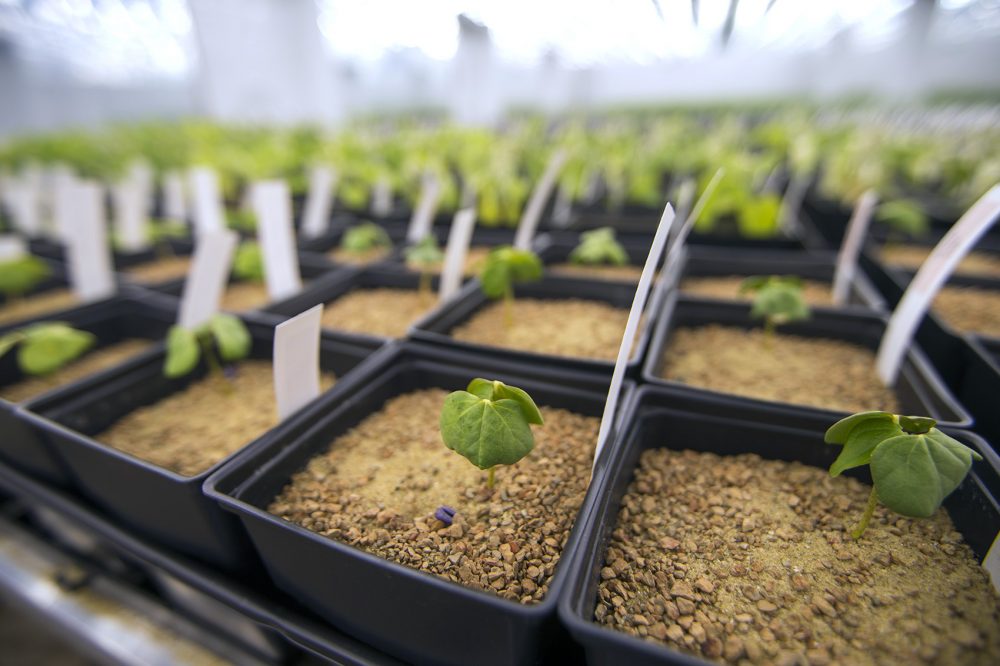
It's the same logic scientists have used around the human microbiome -- the idea that tiny microbes in our gut help us live healthier.
Under that theory, Indigo isolated thousands of microbes and discovered which ones seem to directly affect how a plant deals with water stress. And they then created seed coatings for different types of crops: wheat, corn, soy and cotton.
"We typically use one microbe or two microbes that are adhered to the surface of the seed with a polymer coating," von Maltzahn explained. "So it’s detective to the eye because we put a color on it. Otherwise it’s less than a millimeter thick and you wouldn’t otherwise notice something remarkably different about the seed."
Around the corner from a lab with microscopes at the company's Charlestown office is a grow room with row after row of blinding light bulbs to imitate the type of scorching summer sun plants would endure in the Midwest. And under the glare of that light are rows of soy and wheat plants in little individual black plastic containers.
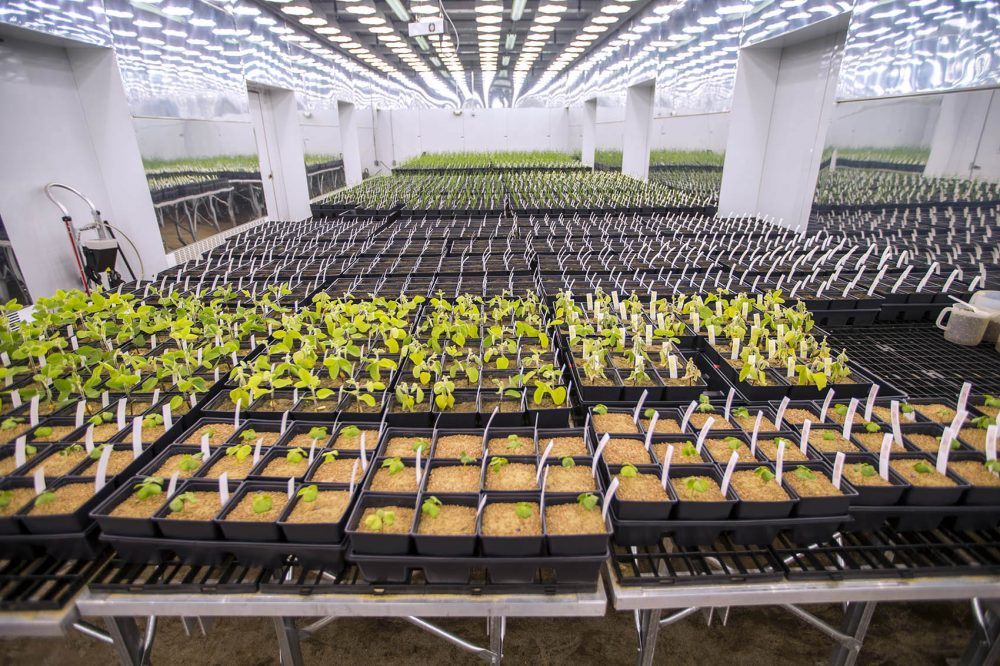
Many of the plants have different microbe coatings, and they're at different stages in life, suffering from different pressures — all so the company can see what's most effective.
"Those are plants that we're gonna place under an extreme water stress," von Maltzahn said, pointing to a sign that says "emergency, don't water."
"At the origins of Indigo, we became really interested in the pressure of climate change and the realization that every year farmers were gonna be growing crops in hotter, drier and more extreme climate variation," he said.
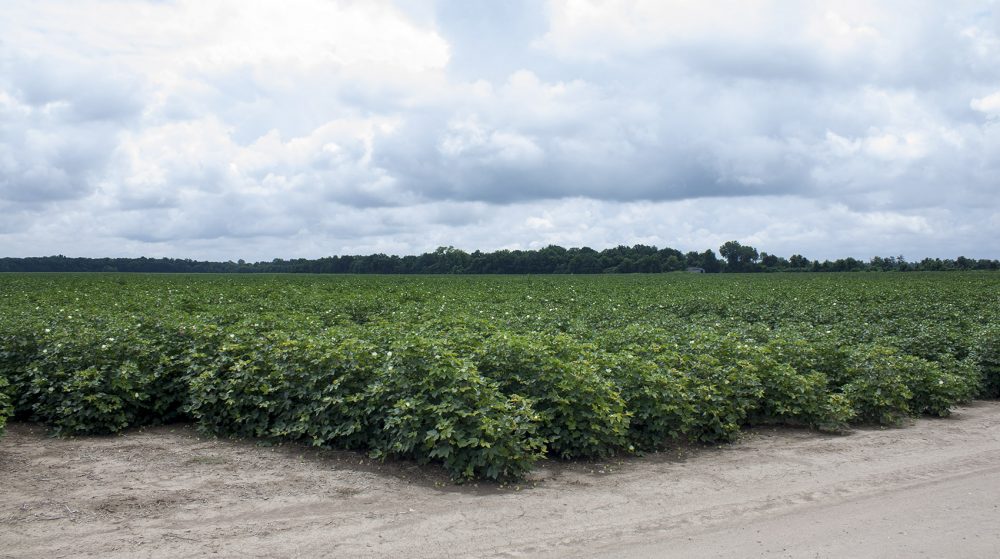
Indigo launched its cotton seeds commercially last year. Chism Craig, an agronomist and farmer, is working with the company throughout the South to test the seeds on farms.
One of those farms is in the middle of the Mississippi Delta, "a flood plain of extremely rich farmland," according to Craig. But still, he says, farmers always like to say: "We're one week away from a drought."
"If we have periods of two to three weeks at a time where we don't have any rainfall, and we have a technology that allows that plant to thrive under those conditions, that could mean the difference between a profit and a loss," Chism said.
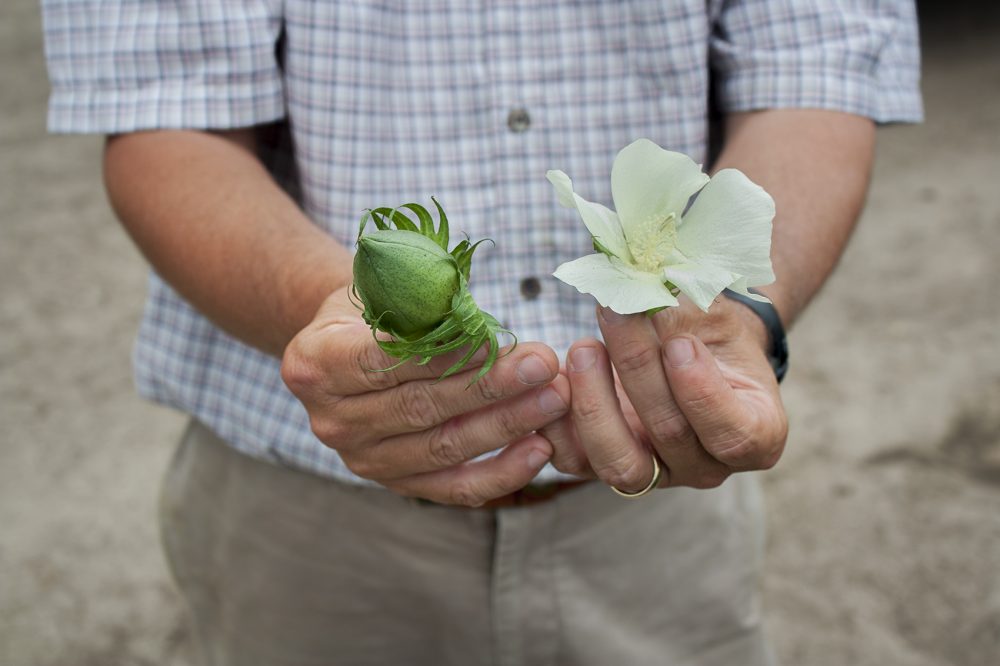
Chism says earlier in the season on this farm you could see a stark difference between Indigo and non-Indigo cotton.
"[Indigo plants] tended to have a better color, they were taller, their root system was a little bigger," Craig said. "Overall the crop just looked healthier and more vigorous and it was noticeable. I mean, we’re standing here by a highway here. The difference was very easy to distinguish as you drove by at 55 miles per hour."
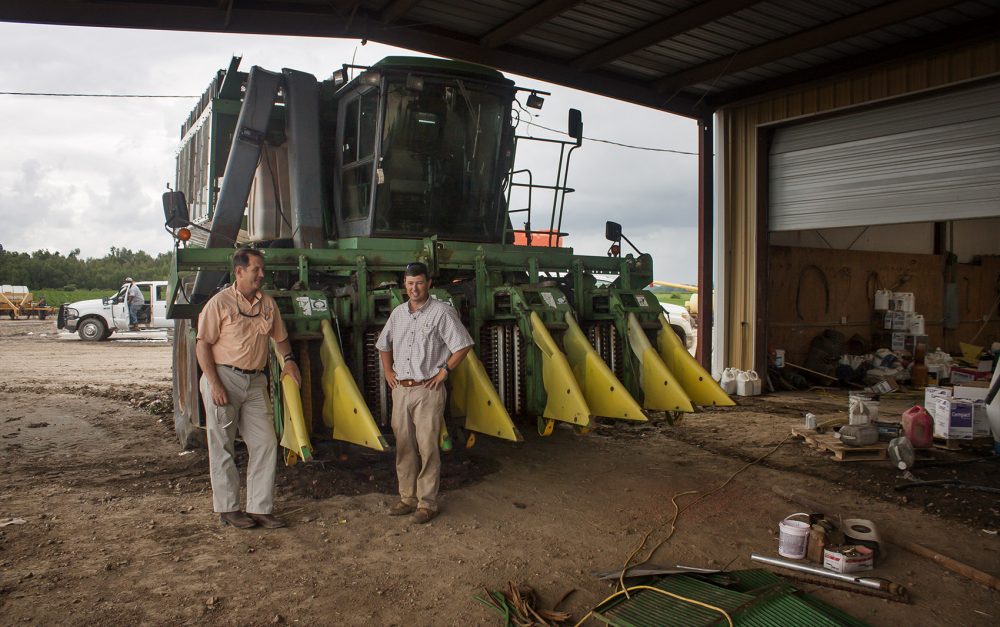
In the spring of 2016 Indigo planted some 50,000 acres of commercial cotton with farmers throughout the South. Initial data from Indigo showed an 11 percent increase in the cotton yield, compared with conventional cotton. In farming terms, that's "out of the park," according to Kater Hake, the vice president of agriculture and environmental research at Cotton Incorporated in North Carolina.
Indigo's initial results are a promising step, and other companies, including big ag like Monsanto, are starting to get into the microbial business.
"If you talk to any senior technology person in any of the big companies ... they would all say microbiology is one of the top two or three new innovations in agriculture that's gonna be important."
David Perry, Indigo's CEO
"If you talk to any senior technology person in any of the big companies — Monsanto, Bayer, Pioneer -- they would all say microbiology is one of the top two or three new innovations in agriculture that's gonna be important," said David Perry, Indigo's CEO.
But some folks in the industry are still cautious.
Hake says Indigo's technology seems like "good science," but the big question is whether it can hold up year after year. "Getting 11 percent consistently under drought conditions with one technology is not realistic," he said.
And, Kent Bradford, the director of the seed biotech center at UC Davis, says the idea of using a plant's microbiome is still very much in the early days.
"I think there's potential for it," he said, but then quickly added, "I think getting it to work consistently in the field is gonna be more challenging."
Bradford says plant microbes cannot realistically replace plant breeding or GMOs — at least not yet. But he says there's no doubt climate change is going to be a problem for farmers in the years to come, and what Indigo is trying might help.
To date, Indigo has filed over 250 patents for combinations of microbes and the methods of producing them. The company is collecting the first commercial wheat harvest now, and plans to announce the data within two months.
This segment aired on August 16, 2017.
